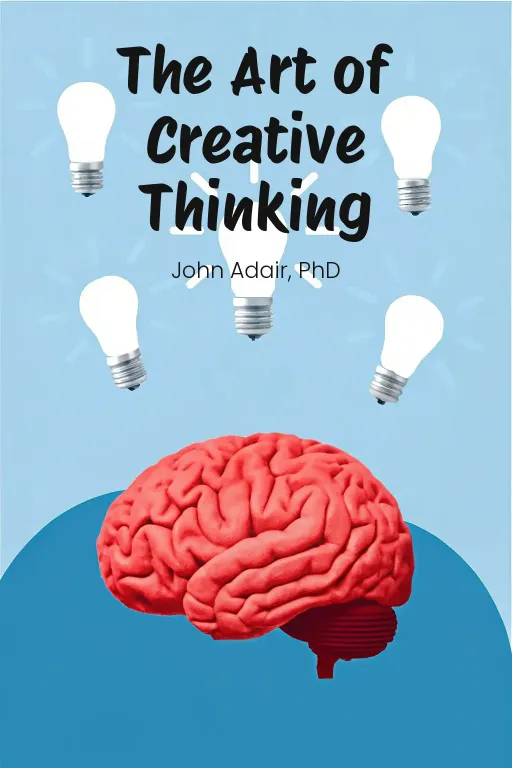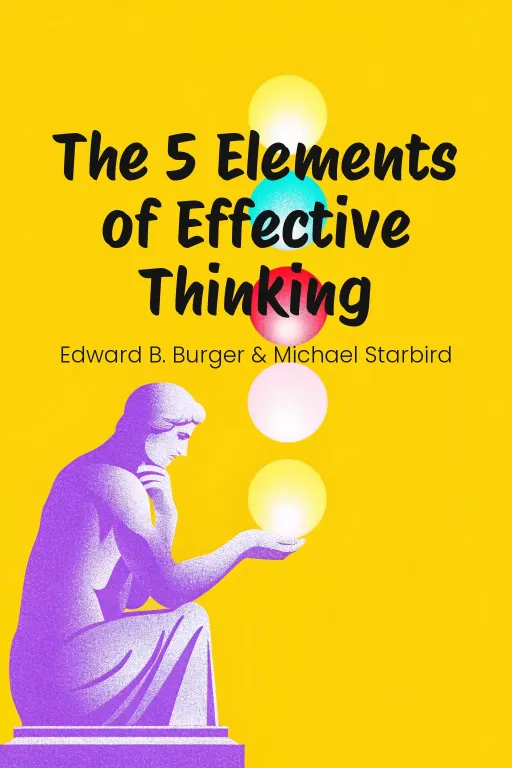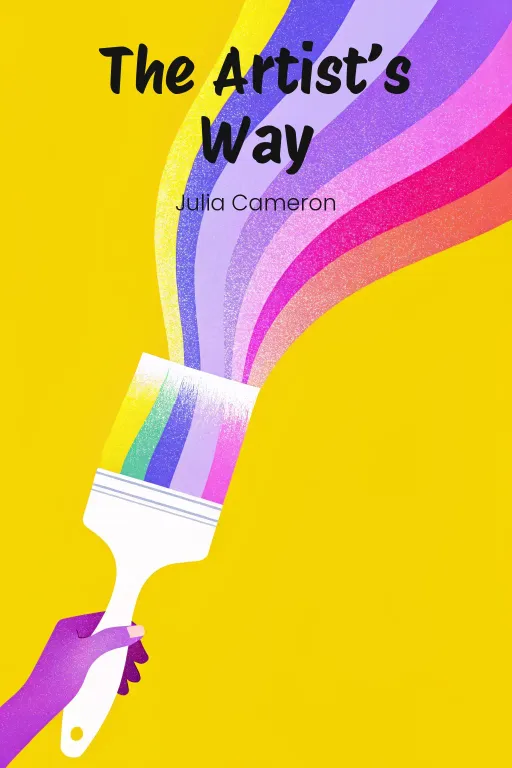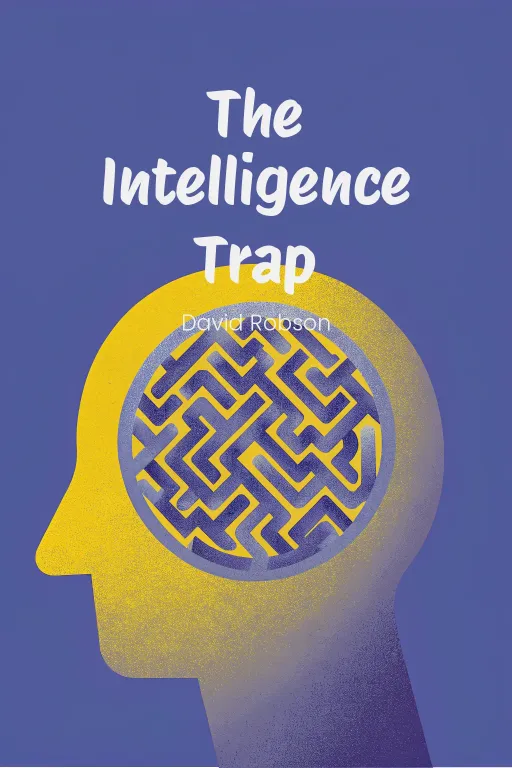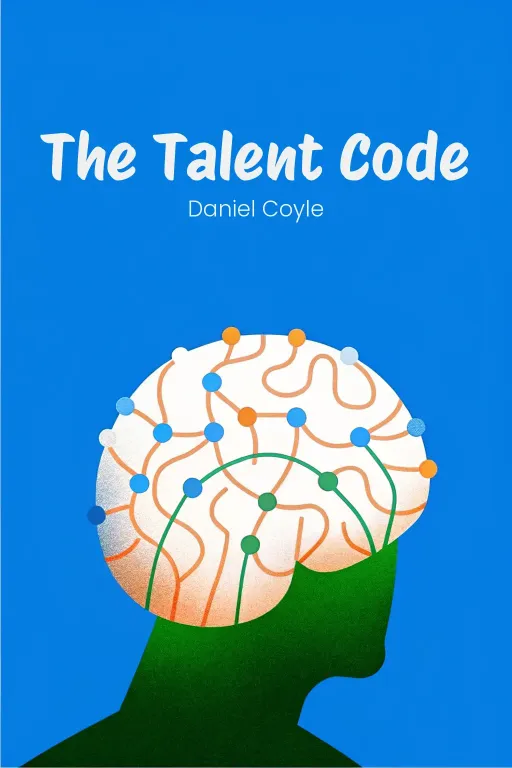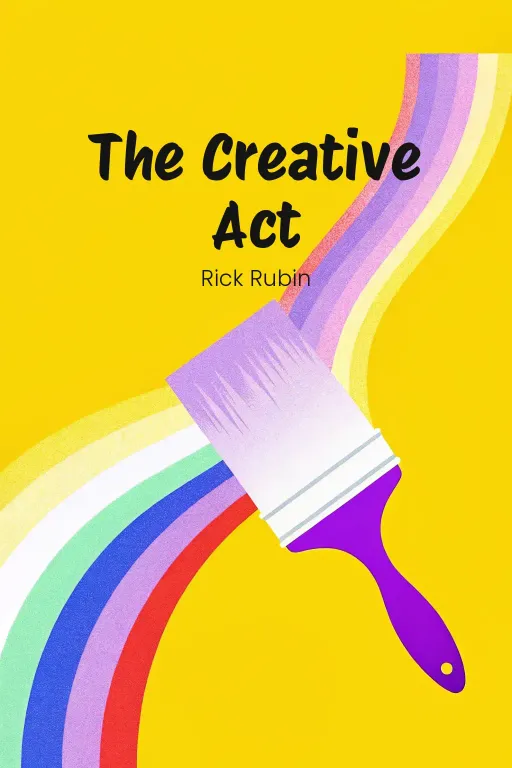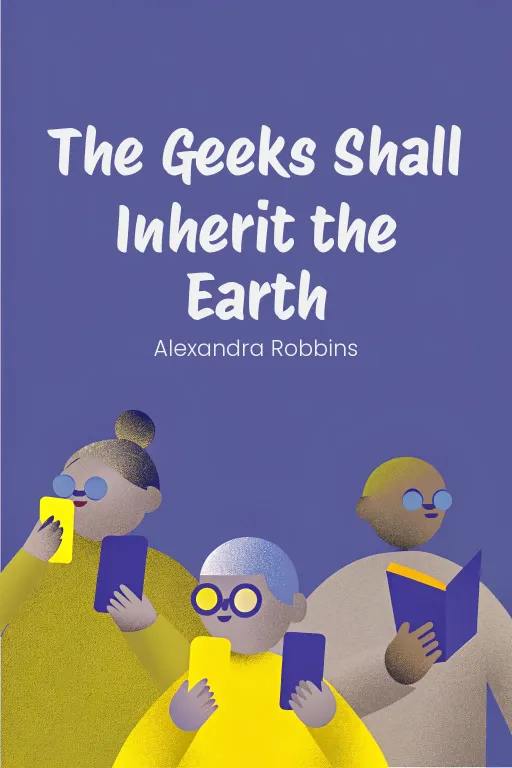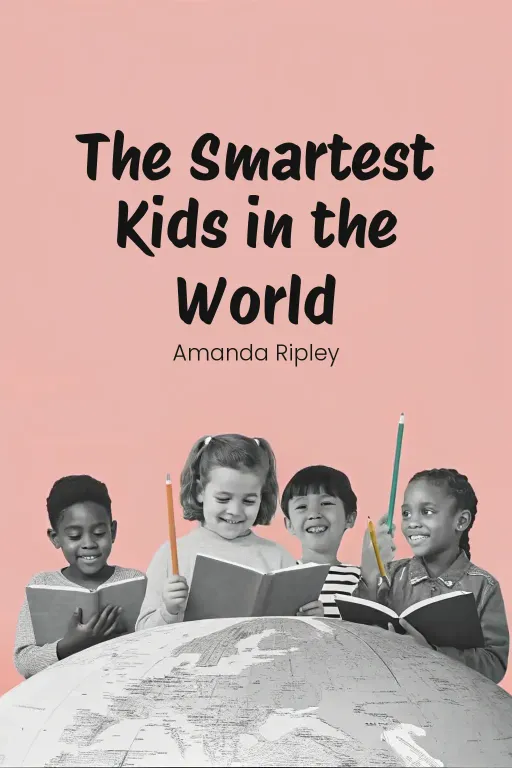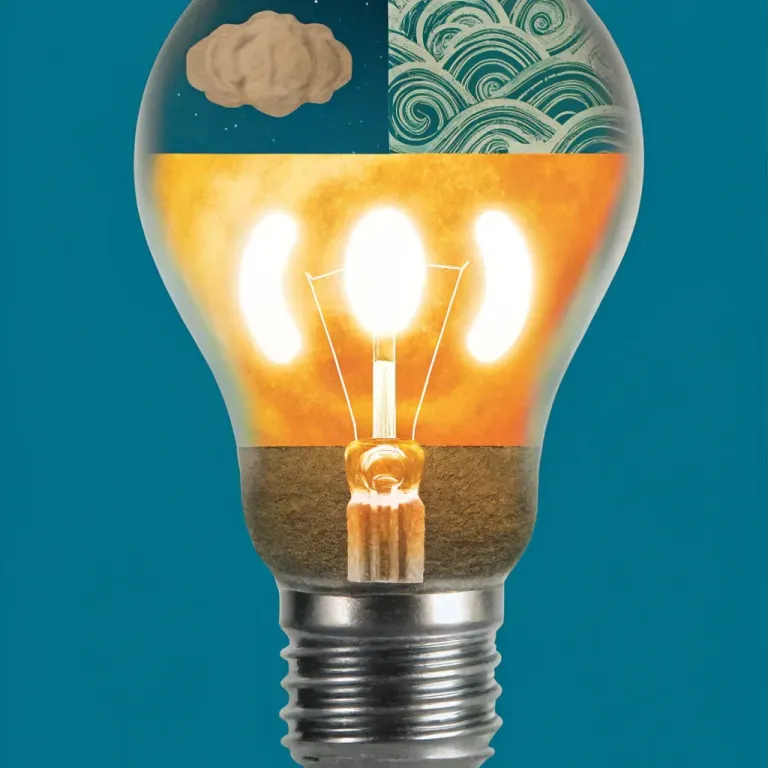
Think Smarter: 5 Steps to Real Breakthroughs
Podcast by Beta You with Alex and Michelle
Think Smarter: 5 Steps to Real Breakthroughs
Part 1
Alex: Hey everyone, welcome back! Today we're talking about something that really impacts everything we do: how we actually think. Ever feel like you're just spinning your wheels on a problem, wishing there was a manual for your own brain? Michelle: Oh, you mean like that constant replay of "Why did I do that?" It’s like life gives us a jigsaw puzzle, but forgets to include the picture on the box. Alex: Exactly! And that's where The 5 Elements of Effective Thinking by Burger and Starbird comes in. It's not just another self-help book; it's more like a practical guide to making your mind a problem-solving, idea-generating machine. Seriously. Michelle: Right, so they break down thinking into these five elements – Earth, Fire, Air, Water, and Change. Sounds like a course straight out of Hogwarts. But, each element's supposed to be a practical tool we can use right away, right? Alex: Exactly. We're going to unpack each of these: understanding deeply, learning from mistakes – which we all make! – raising thoughtful questions, following ideas, and embracing change. Think of them as gears that link together; when one moves, the others start turning, and you’re off on this journey of growth. Michelle: Okay, so, whether you're trying to master a new skill, crack a “really” tough problem, or just want to sound smarter at your next dinner gathering, these elements will come in handy. Let's dive in and see what they're all about.
The Five Core Elements of Effective Thinking
Part 2
Alex: Alright, let's dive right into Earth – and I mean really “understanding” things, y'know? It's about more than just surface-level stuff; it's about grasping the core principles. I mean, how often do we just skim the surface of a subject, memorizing enough to scrape by instead of truly mastering it? Michelle: Totally, it's like cramming for an exam, and then, poof, everything vanishes the second you hand it in. The authors drive this point home with Silas, the math student. He “thought” he knew his stuff because he had all the formulas memorized cold, but bam, the second he faced an unfamiliar problem, his knowledge crumbled. Alex: Exactly! That failure was a real turning point for him. He realized he needed to focus on the "why" “behind” the concepts, not just the "how." It's like learning an instrument – you can't just follow the sheet music, you need to “understand” why certain notes create the melody. Michelle: So the key takeaway here isn't just accumulating knowledge, but really challenging yourself by asking, "Could I explain this so a 5-year-old would get it?" It's actually pretty humbling, because it forces you to confront what you “don't” know. Alex: Definitely. And the technique they suggest – breaking things down to their core – is a total game-changer. Instead of panicking when faced with a complex problem, imagine just pausing, stripping it back to its fundamentals, and tackling it one piece at a time. I mean, that sounds much more manageable. Michelle: It's like dismantling a jigsaw puzzle, flipping each piece over to study the patterns instead of frantically jamming random pieces together out of frustration. I could use that next time I put together IKEA furniture. Alex: Oh, absolutely. And speaking of frustration, that brings us to Fire – embracing mistakes. Mistakes are crucial for growth, but let's face it, they also kinda sting. The authors use Microsoft's early software failures as examples, showing how they treated them not as disasters, but as learning opportunities to improve future products. Michelle: Alright, but let's dig into that a bit, because it's easy to “say”, "Learn from your mistakes," but much harder to actually do it. How do you move past that feeling of, "Ugh, I messed up!" Alex: Well, it's all about shifting your mindset. Instead of seeing a mistake as a dead end, you reframe it as valuable data. Each error gives you insight into what “not” to do, which guides you closer to a solution. And they suggest deliberately exaggerating problems to expose potential weak points. Michelle: Now, that's a wild idea. It's almost backward, but I see how it could work. Like designing a product that's intentionally over-the-top ridiculous to reveal flaws and polish the core concept. Alex: Precisely! Think of it as stress-testing your thinking. It’s better to “invite” failure on your own terms in a controlled setting, rather than have it blindside you when it really matters. Michelle: It’s like how comedians workshop material in small clubs - bombing “on purpose” to refine their jokes before the big special. This finally gives validity to being an awkward high school stand-up comic... Alex: Don't quit your day job. Anyway, that perfectly leads us to Air – the art of asking questions. This one seems deceptively simple, doesn't it? I mean, who hasn't already been told to “ask more questions?" Michelle: True, but the authors take it a step further than just being nosy. They emphasize crafting the right questions, ones that challenge assumptions and introduce new perspectives. Think of the Socratic Method – using "Why?" and "What if?" questions to peel back the layers of a problem. Michelle: Okay, let’s do a quick role play. Pretend I have questions about climate change, so I ask, “Why is the planet warming?” You’d probably hit me with... Alex: Well, I’d ask, “What specific factors contribute to the rise in temperature?” or “What would happen to the various ecosystems if temperatures rose just one degree?” It's all about sparking deeper thinking and understanding rather than finding surface-level answers. Michelle: So, instead of solving it for me, you’re guiding me to “think” critically. There’s power in getting people to find answers themselves, instead of just handing them solutions. Alex: Right, it's especially useful in collaborative settings – whether it’s teaching, managing a team, even in a brainstorming session. Asking targeted questions keeps the discussion inclusive enough to encourage creativity, but still focused enough to yield actionable insights. Michelle: I see what you mean about these elements, like Air and Earth, flowing together – one is about depth, the other about breadth. Alex: That’s the beauty of this framework. They enhance one another without being restricted to silos. Michelle: Which leads into Water – it's my favorite, it’s about following the flow of ideas. This one is my favorite because it highlights how much creativity involves connecting the dots and seeing the bigger picture. Their example of the evolution of lighting -- from candles to gas lamps to electric lightbulbs—nailed it. Alex: Absolutely! It's a prime example of innovation that doesn't happen alone. Every breakthrough builds on the groundwork of what came before. To understand the larger context and open new possibilities, we have to understand the chain of ideas. Michelle: So, instead of obsessing over coming up with the next big thing, you look at how far the idea has come and ask, "What's the next leap forward?" Alex: Exactly! They even recommend mapping out an idea’s evolution – what they call idea mapping. It forces you to think chronologically: What came before, how it influenced the now, and what might naturally come next. Michelle: It's like reverse-engineering innovation. I guess it means you have to zoom out sometimes because if you stay focused on one small area, you could miss the bigger picture. Alex: Right, having a broader perspective leads to the final element: Change. After mastering all the other principles, you have to accept the fact that everything evolves—not just ideas but how we think about them. Michelle: I like their comparison to a character being transformed. It’s a reminder that growth requires shaking things up. Alex: And that's the challenge, isn't it? Because it means having to let go of old ways of thinking. When we document how our beliefs or understanding shift over time—in a journal or retrospectives—we see change as progress rather than loss. Michelle: Which brings us full circle, right? Understanding deeply, questioning boldly, learning from mistakes, following the flow of ideas... these are all tools, but they’re only as effective as our “willingness” to adapt. Alex: Spot on, Michelle. By embracing these elements in our thinking, we're not just better problem-solvers, we're evolving as learners and thinkers. It's a lifelong journey, but what better adventure is there than that? Michelle: I agree. We all have what we need, it's up to us to choose if we want to use it. Thanks for bringing all of this to light, Alex!
Conclusion
Part 3
Alex: So, today we talked about “The 5 Elements of Effective Thinking”: understanding deeply, learning from mistakes, asking profound questions, following the flow of ideas, and embracing change. Honestly, each element is such a powerful tool for improving how we think, learn, and solve problems. Michelle: You know, when you put it all together, these elements really do feel like a system. Digging deep, like Earth; refining through Fire; opening new perspectives with Air; building connections with Water; and evolving through Change. It’s not just about thinking smarter, is it? It’s about completely transforming how we tackle challenges and even how we approach creativity. Alex: Exactly! And honestly, the best takeaway? Start small. Seriously, just pick one element and experiment with it this week. Maybe break a problem down into its fundamentals with Earth, or reframe a recent mistake through Fire. See what sparks! Michelle: Right, because thinking isn’t just something we “do”, it’s a skill we can actively sharpen. So, start asking better questions, embrace the discomfort that comes with growth, and see where these tools take you. I’m curious to see how this works in practice. Alex: Yeah, thanks for joining us on this journey of effective thinking. Until next time, keep evolving and keep thinking deeply. Michelle: And hey, don’t forget, mistakes aren’t failures. They’re just proof you’re actually learning something. See you next time!

